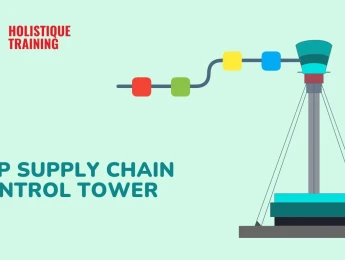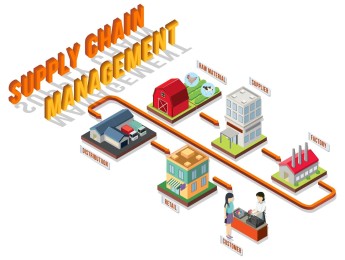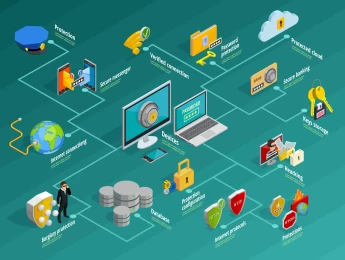Retail is an extremely vast industry that every member of society will partake in at one point or another. Many of us will access the industry as customers and will only experience what it has to offer at face value—a simple process of buying a product. However, the industry does not end there. Retail is multi-leveled, with each layer being highly complex.
Retail management is a crucial factor in ensuring retail stores can function at maximum efficiency. Store management requires those involved to be skilled at maintaining inventory and stock records. Stock control is essential for reducing waste in products and profits, and it guarantees that all stock can be used and sold to increase profits.
Stock control is not the only important factor. Effective store management also includes reinforcing and maintaining a secure relationship throughout the supply chain, from manufacturer to supplier and to those selling the stock in-store. Without these connections, a retail store will be unable to fulfil its purpose and will suffer a complete financial loss.
The store’s proficiency also falls on the employees' shoulders. A manager must be present and possess the necessary skills to keep all employees on track and working accordingly. Building relationships and coaching those where needed is a secure way of keeping a store effective and the workforce dedicated to their roles.
Upon completion of this course, participants will be able to:
- Achieve the maximum performance in-store.
- Provide exceptional customer service.
- Apply complex principles of supply chain management.
- Effectively manage warehouse operations.
- Carry out frequent reviews to ensure productivity.
- Greatly reduce losses through scientific stock control.
- Maintain adequate records of inventory.
This course is designed for anyone responsible for management within the retail industry. It would be most beneficial for:
- Sales Managers
- Customer Service Managers
- Marketing Officers
- HR Personnel
- Regional Managers
- Retail Franchise Owners
- Product Managers
- Warehouse Managers
This course uses a variety of adult learning styles to aid full understanding and comprehension. Participants will review physical and digital records of inventory and methods of stock control to understand the importance of record-keeping in supply chain management.
They will be provided with the necessary tools and systems to practice the stock control process based on examples of real-world successful retail businesses. This will give the participants a comprehensive understanding of what would be required while creating detailed and accurate stock records. Will partake in group discussions and role-playing activities to engage with the other learned skills and work together to simulate maintaining supply chain processes.
Day 5 of each course is reserved for a Q&A session, which may occur off-site. For 10-day courses, this also applies to day 10
Section 1: Store Operations
- Modern warehouse functions.
- Streamlining the flow of material.
- Understanding warehouse management systems.
- Measuring warehouse and store performance.
Section 2: Stock and Record-Keeping
- Barcoding, issues of stock, and receipts.
- Stocktaking and types of stockholding
- Order quantities and safety stock.
- Methods of reducing and disposal of surplus stock.
- Review types of inventory record-keeping systems.
- Category records, Vendor records, and Item records.
Section 3: Stock Control Function
- Define processes and stock types.
- Strategies for stock control.
- Just-in-time (JIT), Vendor-managed Inventory (VMI), Batch Control.
- Understanding the benefits of consignment stock.
- Transporting products through the supply chain.
- Maintaining and measuring stock control efficiency.
Section 4: Supply Chain Management
- Creating the ideal supply chain.
- The vitality of organisational structure.
- Building flexibility into the supply chain.
- Leading a supply chain turnaround.
Section 5: Inventory Improvements
- The theory of constraints.
- Mapping the supply chain process.
- Understanding the concept of ‘sawtooth curve.’
- Utilise the Economic Order Quantity (EOQ) graph to identify improvements.
- Inventory in the distribution network.
Section 6: Managing Employees in Store
- Theories of motivation.
- Advantages of dedicated employees.
- Establishing a safe and healthy working environment.
- Engaging with employees to create positive and appropriate workplace relationships.
- Developing powerful communication.
- Coaching weaker employees to improve performance.
- Offering rewards and incentives for outstanding work.
Upon successful completion of this training course, delegates will be awarded a Holistique Training Certificate of Completion. For those who attend and complete the online training course, a Holistique Training e-Certificate will be provided.
Holistique Training Certificates are accredited by the British Assessment Council (BAC) and The CPD Certification Service (CPD), and are certified under ISO 9001, ISO 21001, and ISO 29993 standards.
CPD credits for this course are granted by our Certificates and will be reflected on the Holistique Training Certificate of Completion. In accordance with the standards of The CPD Certification Service, one CPD credit is awarded per hour of course attendance. A maximum of 50 CPD credits can be claimed for any single course we currently offer.
- Course Code IND09-105
- Course Format Classroom, Online,
- Duration 5 days














